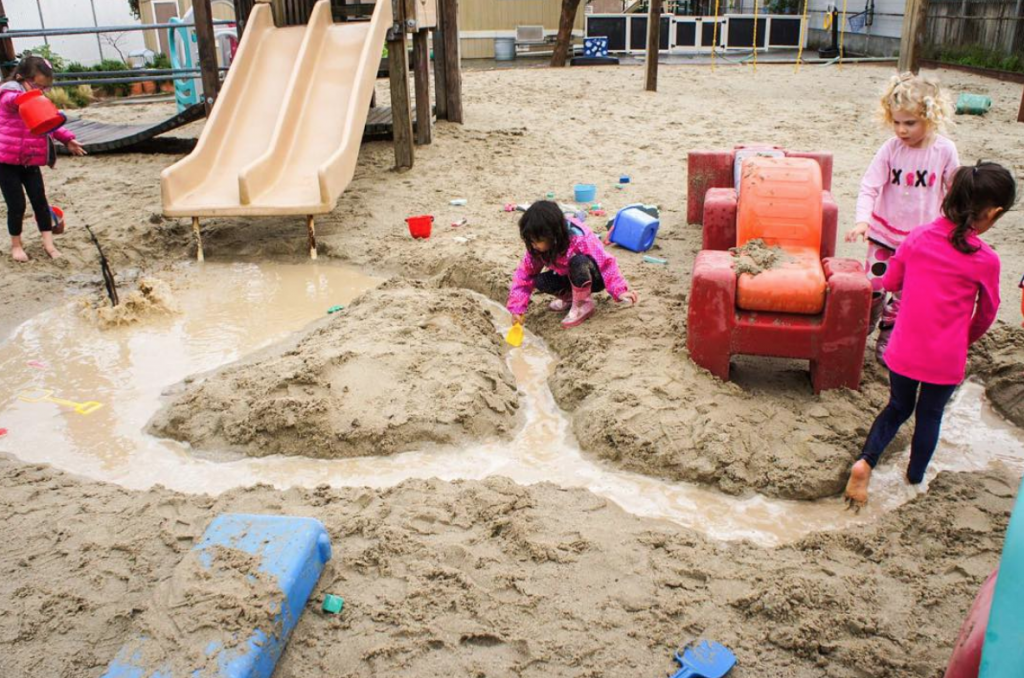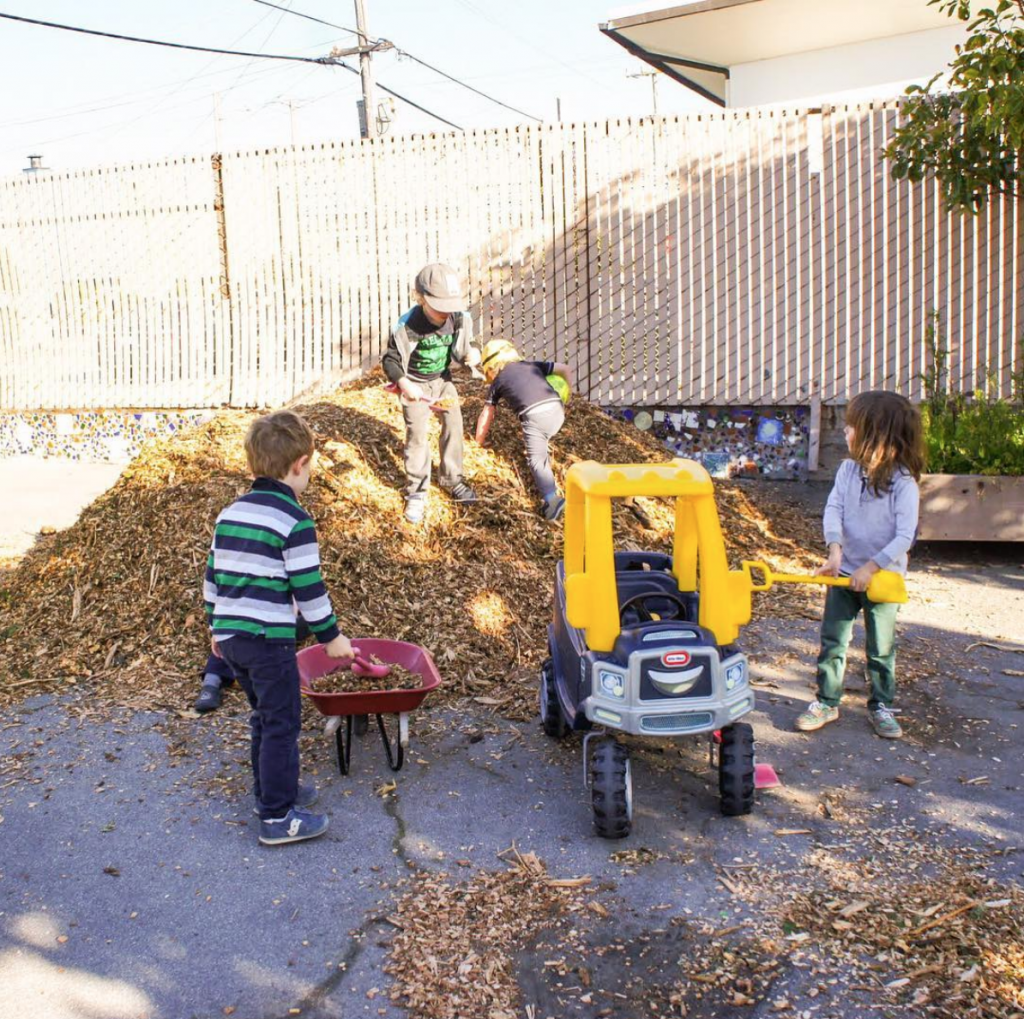


What is Play-Based Learning?
Play-based learning is learning done in the context of play. Children of all ages learn best when the activity is fun and exciting. Very young children are easily taught concepts such as math, science, and literacy through various activities, including circle time, dramatic play, creative expression, manipulatives (i.e., blocks, Legos, play dough), and the day-to-day explorations of the world around them.
Older children expand upon their knowledge during the school day by applying it to more creative and independently driven projects. Because play is the natural activity children engage in, our responsibility is to make it as enriching and exciting as possible!
We aspire to provide a program rooted in best practices, backed by research, and measured by our achievement of DAP (Developmentally Appropriate Practice) guidelines.
We meet the child’s age-appropriate and individual needs by providing a hands-on environment that enhances cognitive, language, physical, and social-emotional development.
Children in our programs experience active transitions, exploration, and routines that reflect the scope of our hands-on, play-based early childhood curriculum. Children experience learning as a discovery process, not as the completion of a product.
How do we ensure children are engaged
in play-based learning?
We ask children open ended questions such as:
What do you think?
How does that feel, smell, taste?
What do you think will happen if…?
We encourage children to focus and discover
the process not the end product.
Instead of making a model or sample artwork for the children to copy, staff and teaching parents explain the activity to the children and then let them explore the materials
We engage with children in meaningful dialogues about the activity
or project they are working on. Staff and teaching parents are constantly interacting with the children.
We create a purpose or objective for every activity
that is presented to children.
We allow the children to choose the activity or area
of study and then follow-up on their interests.


